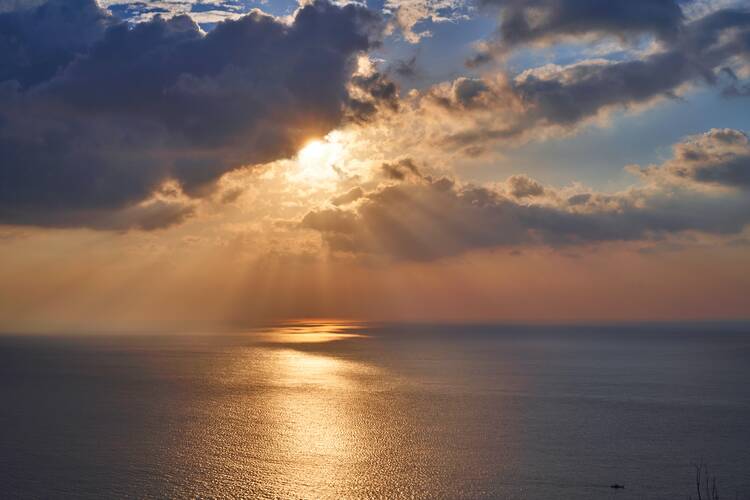A Reflection for the Ascension of the Lord
Find today’s readings here.
People who met Mother Teresa wondered where she got her persistence and vision. Visitors to Catholic Worker in New York often wondered the same about Dorothy Day. Readers of Thomas Merton’s works are often astonished at his unique insights. People who knew Pope St. John Paul II or who follow the day-to-day life of Pope Francis are genuinely surprised by the boundless vigor they possess.
The early church explained this energy as the result of Christ’s ascension. The Lord had taken his throne in heaven. From there he directed the growth of the church and poured out gifts on his disciples.
Ascensions were a popular theme in religious literature of Jesus’ day. Popular stories circulated about the ascensions of biblical characters Enoch, Elijah and Moses. Post-biblical Jewish writings identify several other people who entered paradise without death. Likewise, Islam teaches Mohammed’s ascension from Jerusalem. Sometimes these journeys were temporary; an individual travels to heaven to receive a divine message for all humanity. Other times, as in Elijah’s case, they were permanent, representing the end of a life of divine service. Sometimes ascensions were mystical, happening in a purely spiritual realm, whereas others were physical in which the body departed earth with the mind and soul for a life with God.
We can do astonishing things when we trust in Christ. Trusting in oneself, by contrast, leads to dead ends of frustration and ego.
Jesus’ ascension was both physical and permanent, but it also had mystical and temporary qualities. Each Ascension account has within it the promise of a continuing mystical relationship and of a future return. For example, in the Gospel of today’s solemnity, Jesus promises to remain a source of power for his disciples “until the end of the age.” In the first reading, Jesus promises to remain in the Spirit even as angels foretell the day of his return. The second reading also speaks of the Spirit, but implies that the Church, too, is an agent of Jesus’ mystical presence until “the age to come” when he shall rule over all. In each case, the Ascension represents the point at which the disciples take over Christ’s mission, trusting that he shall somehow remain with them even though he is no longer present in the body.
If there is a call in this for our own discipleship it is to trust in that same power and presence. We can do astonishing things when we trust in Christ. Trusting in oneself, by contrast, leads to dead ends of frustration and ego. Because of our baptism, we form a part of Christ who is enthroned in heaven. When we make ourselves his incarnate hands and voice and heart, we continue the mission he accepted and share in the glory he received.








